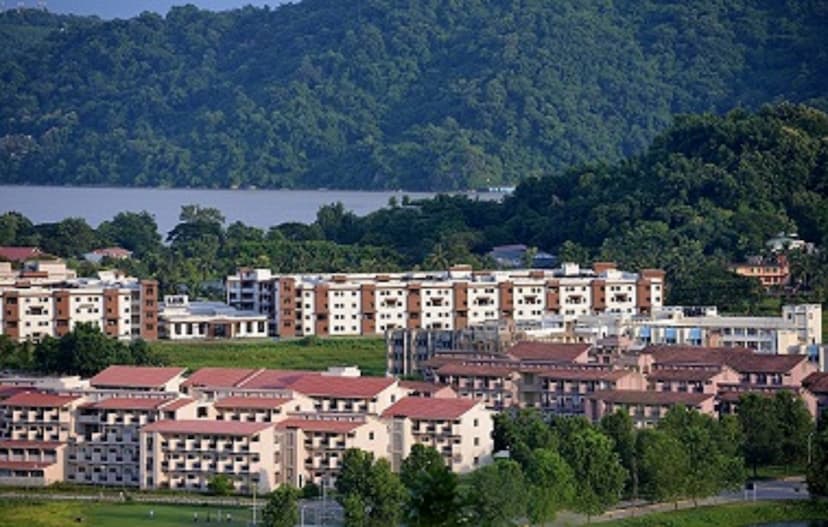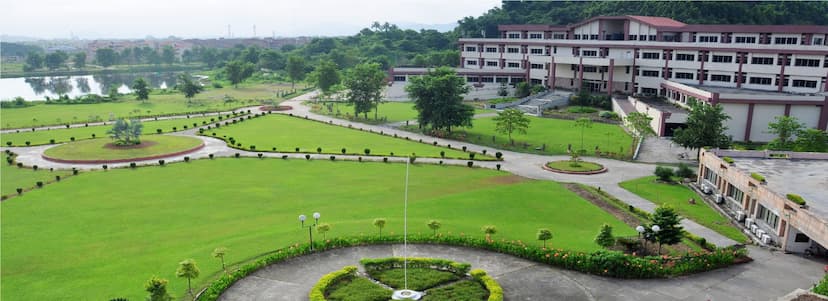IIT Guwahati researchers use great modern methods

IIT Guwahati researchers have used modern drug development methods to understand to understand the mode of action of an ayurvedic rejuvenating medicine – Amalaki Rasayana.
The study was conducted by Professor Vibin Ramakrishnan, professor of Department of Biosciences and Bioengineering at IIT Guwahati and Professor C.C. Kartha of Academy of Cardiovascular Sciences.


Professor Ramakrishnan of IIT Guwahati and Professor Kartha has earlier found that long term oral intake of Amalaki Rasayana brings down the thickening of heart muscle and improves heart function.
The present study conducted by Professor Ramakrishnan of IIT Guwahati and Professor Kartha used the emerging scientific approaches of Network Pharmacology and Chemoinformatics shows how the formulation is likely to work in the human body.
IIT Guwahati researchers use great modern methods
Network pharmacology analyses the influence of drugs on diseases as a whole rather than the one-gene-one-target-one-drug approach that has been conventionally followed in drug discovery.

Network Pharmacology is effective for developing multi-component therapeutics, which is typical of traditional systems like Ayurvedic and Chinese medicines – the drugs prescribed in these systems act on multiple targets and pathways.
Chemoinformatics helps in comparing drug molecules using standardised computational tools.
While Ayurvedic medicines and therapeutics have been handed down over generations and shown anecdotally to be efficacious, they have not yet been subjected to a great extent to the modern methods of drug development, say researchers from IIT Guwahati
For practitioners of modern medicine, ‘scientific evidence’ means verification of the efficacy and safety of a potential drug, using the tools and procedures employed in modern medical biology.

‘Thus, Ayurveda is often considered as being ‘not scientific.’
Professor Ramakrishnan of IIT Guwahati said the hallmark of Ayurvedic system is the long-standing unverified claim that it is a holistic approach; it treats the body as a whole.
Multiple components in an ayurvedic medicine are believed to act synergistically to improve a diseased condition, said Professor Ramakrishnan of IIT Guwahati.
‘Our analysis using the tools and techniques of modern medicine suggests that this is, indeed, true.’

The scientists from IIT Guwahati employed in-vivo studies in small animals, gene-expression and proteomics analysis, informatics tools and the techniques of Systems Medicine, all of which are used in the development of allopthic drugs.
They also examined the possible synergy among the actions of different components of the Rasayana using the Network Pharmacology approach.

The work by Professor Ramakrishnan of IIT Guwahati and Professor Kartha integrates Ayurveda with the principles and practices of modern medicine to contemporise the former’s ‘holistic approach’ with the latter’s ‘magic bullet’ style.
Automated system
Researchers from IIT Guwahati proved their mettle once again by developing an automated system to detect colorectal cancer.
The team of researchers from IIT Guwahati led by Professor Manas Kamal Bhuyan along with scientists from reputed institutions located across the globe have used Artificial Intelligence (AI) based system to detect colorectal cancer using colonscopy images.
Results of the work by IIT Guwahati scientists and researchers from other reputed ogranisation have recently been published in a prestigious journal belonging to the Nature group – Scientific Reports.

Dr. Saurav Mallik of Harvard University, USA have also contributed to the study.
Colorectal cancer is the third most common type of cancer among men and women in India, but if detected early it can be cured.
The commonly used technique to detect colorectal cancer is colonoscopy, in which the specialist – physician, gastroenterologist or oncologist – visually inspects the image obtained by the camera inserted into the colon of the subject.
In the current manual approach for colonoscopy examination by physicians, observation bias may sometimes lead to an erroneous diagnosis.
Professor Bhuyan of Department of Electronics and Electrical Engineering of IIT Guwahati said they have developed an innovative automated system that can help the physician rapidly and accurately detect colorectal cancer from colonoscopy images.
This is important because it prevents delays in diagnosis – quoting the late doyen of oncology Dr. V. Shanta “Fear not cancer diagnosis, but its delay.”
Furthermore, currently doctors waste a lot of time and energy on manually analysing the images, valuable time that can be spent on devising management and treatment strategies for the patient, said Professor Bhuyan.
Scientists from Cotton University, Guwahati, Harvard University, University of Texas Health Science Centre Houston and Aichi Medical University, Japan have collaborated with the IIT Guwahati professor in this development.
Assisted by his then-post doctorate student, Dr. Kangkana Bora, who is now an assistant professor at the Cotton University, Professor Bhuyan analysed real colonoscopy images generated by Dr. Kunio Kasugai of Aichi Medical University, to develop the AI based cancer detection system.
During the visual examination, specialists check for the presence and features of abnormal tissue growths (polyps) including shape, surface structure and contour to classify them into different categories (neoplastic and non-neoplastic).
The multi-institutional team extracted the shape, texture and color components through artificial intelligence algorithms using different filters.
The statistical significance in the contribution of different components was then evaluated, followed by feature selection, classifier selection based on six measures and cross validation.
Dr. Kangana Bora who was then post doctorate student of IIT Guwahati said to evaluate the robustness of their system, they compared their work with four classical deep learning models and found theirs to be better than others.
‘Our AI algorithm can be easily integrated with the current methods of diagnosis, which is a significant USP for this work,’ she said..

It plans to commercialize the technology in the future as the market need is enormous.
However, before commercialization, they have laid out an ambitious research plan to finetune their system.
‘The work we have reported only focuses on single frames selected by the doctors. In future, we will integrate it with video tracking and automatic frame selection, says Professor Bhuyan from IIT Guwahati.
The team also proposes to implement their analytical approach into a computational tool for easy use.
S Vishnu Sharmaa now works with collegechalo.com in the news team. His work involves writing articles related to the education sector in India with a keen focus on higher education issues. Journalism has always been a passion for him. He has more than 10 years of enriching experience with various media organizations like Eenadu, Webdunia, News Today, Infodea. He also has a strong interest in writing about defence and railway related issues.









